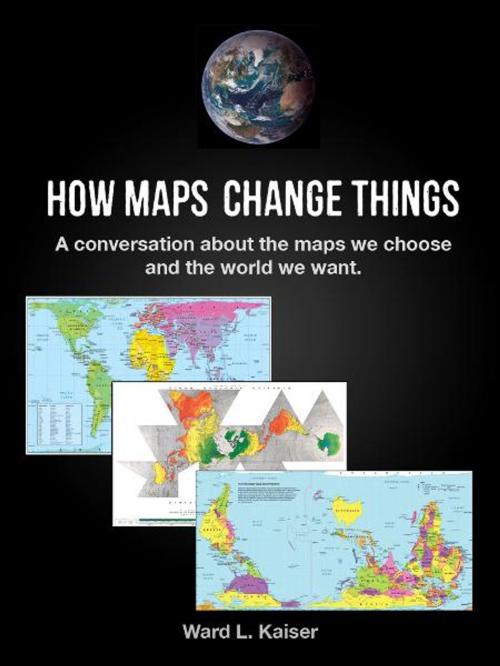How Maps Change Things
A Conversation About the Maps We Choose and the World We Want
Nonfiction, Social & Cultural Studies, Political Science| Author: | Ward L. Kaiser | ISBN: | 9781876998080 |
| Publisher: | New Internationalist Publications Pty Ltd and ODTmaps.com | Publication: | February 29, 2012 |
| Imprint: | MapAware | Language: | English |
| Author: | Ward L. Kaiser |
| ISBN: | 9781876998080 |
| Publisher: | New Internationalist Publications Pty Ltd and ODTmaps.com |
| Publication: | February 29, 2012 |
| Imprint: | MapAware |
| Language: | English |
March 5th 2012 marks the 500th birthday of map-maker Gerhard Kremer, aka Mercator. There are many wishing the Flemish map maker well! From blogs to books the man who has shaped for many our world view is celebrated as often as vilified. Four centuries later, Arno Peters created what many see as a fair view of our world, but others see as a distorted or misleading map! Across the centuries it is maps that link these men and their impact on current human activity. This landmark book - How Maps Change Things: A Conversation About the Maps We Choose and the World We Want - looks at maps by these two men and others. This examination goes beyond maps as nouns, as tactile objects that show locations and distances. "Maps are verbs ... don't be fooled" we are told at the outset of How Maps Change Things. The book examines maps as change agents, reflecting intentions and setting agendas, stating who has what, and who has not. What are the messages sent by maps? What were Mercator, Peters and other map makers setting out to do with each of their creations? Ward Kaiser, author, publisher, pastor, and historian was instrumental in bringing the Peters Equal Area Map to North America. He has been leading the discussion of what maps mean and the power of maps in framing human activities. In How Maps Change Things Kaiser takes a passionate view of how maps illustrate and influence the significant paths humans pursue. Rather than looking for definitive answers, Kaiser focuses on asking thought-provoking questions. "What does our world, through the view of maps, really look like and what does the perspective (or frame of reference or bias) of the viewer mean to the map and its view? Are all maps simply propaganda for the hidden agenda of the map-maker? What is the world we get and what is the world we want ... and who cares and why?" Kaiser has stimulated an impressive and important conversation.
March 5th 2012 marks the 500th birthday of map-maker Gerhard Kremer, aka Mercator. There are many wishing the Flemish map maker well! From blogs to books the man who has shaped for many our world view is celebrated as often as vilified. Four centuries later, Arno Peters created what many see as a fair view of our world, but others see as a distorted or misleading map! Across the centuries it is maps that link these men and their impact on current human activity. This landmark book - How Maps Change Things: A Conversation About the Maps We Choose and the World We Want - looks at maps by these two men and others. This examination goes beyond maps as nouns, as tactile objects that show locations and distances. "Maps are verbs ... don't be fooled" we are told at the outset of How Maps Change Things. The book examines maps as change agents, reflecting intentions and setting agendas, stating who has what, and who has not. What are the messages sent by maps? What were Mercator, Peters and other map makers setting out to do with each of their creations? Ward Kaiser, author, publisher, pastor, and historian was instrumental in bringing the Peters Equal Area Map to North America. He has been leading the discussion of what maps mean and the power of maps in framing human activities. In How Maps Change Things Kaiser takes a passionate view of how maps illustrate and influence the significant paths humans pursue. Rather than looking for definitive answers, Kaiser focuses on asking thought-provoking questions. "What does our world, through the view of maps, really look like and what does the perspective (or frame of reference or bias) of the viewer mean to the map and its view? Are all maps simply propaganda for the hidden agenda of the map-maker? What is the world we get and what is the world we want ... and who cares and why?" Kaiser has stimulated an impressive and important conversation.















